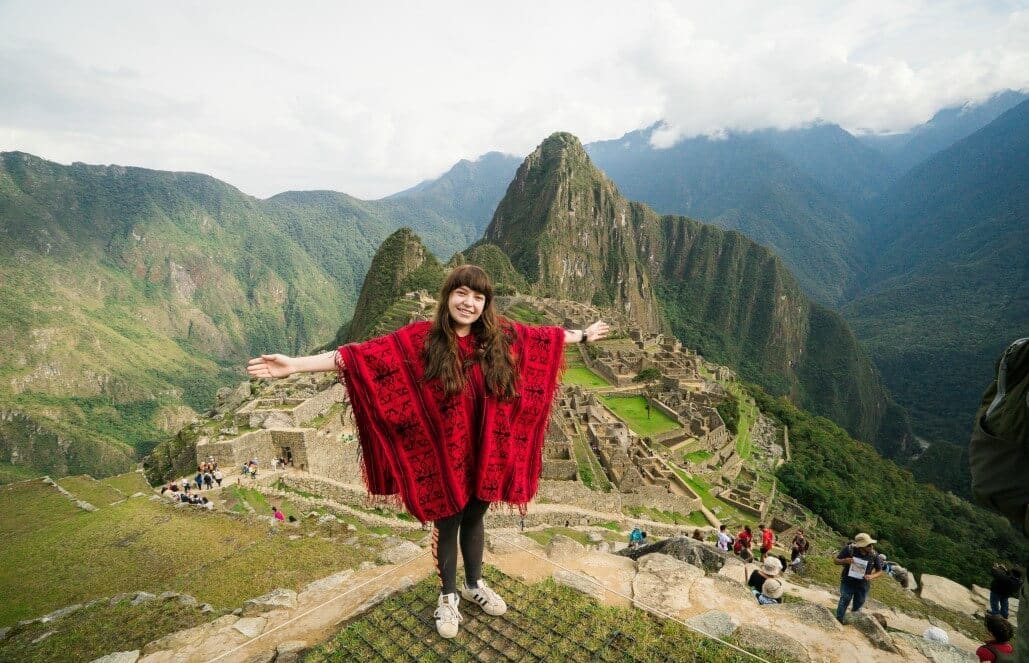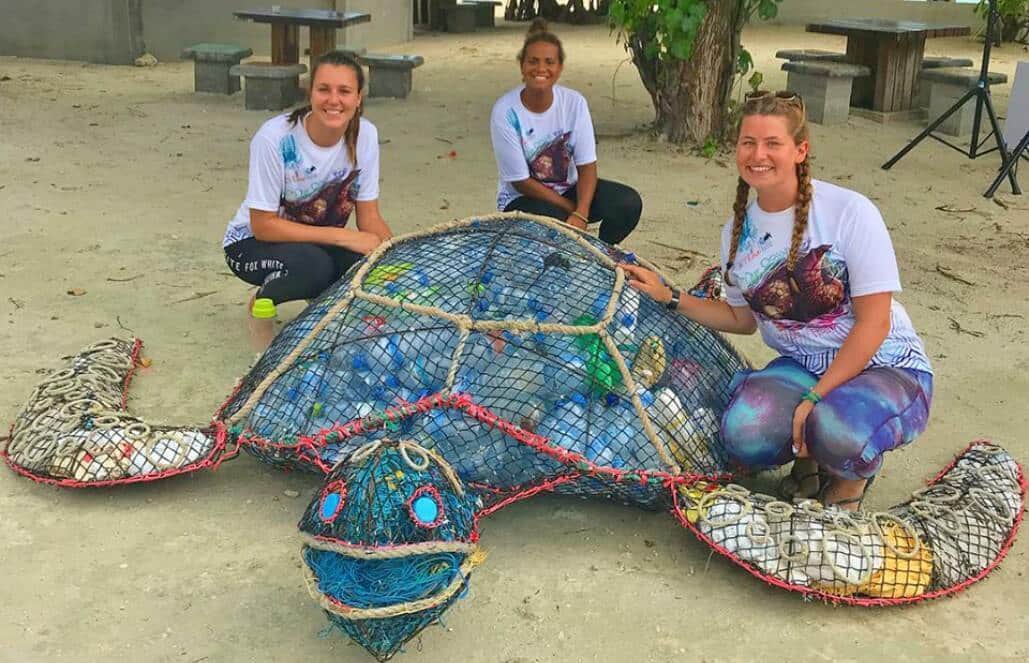When you volunteer abroad you learn to open your eyes to other nationalities, ways of living, and thinking, that you may not have the opportunity to be exposed to at home. Whether you want to help communities who are undergoing hardships or volunteer with animals, you are guaranteed to have a life-changing experience.
This will surely change the way that you view yourself and the world, as you see the tireless efforts of others who are trying to make a positive change to the lives of those around them, and you become a part of the process. In the words of Mahatma Gandhi “be the change that you wish to see in the world”, by volunteering you are doing just that.
So you want to be the change and offer your skills, time and comforts, but find that this can be a costly experience. Why? Google searches of ‘volunteer abroad for free’ turn up with thin results and you are left with a big heart and an even bigger decision to make: is your mere presence more beneficial than a monetary contribution?
The reality is that many organizations require both the hands on help from the volunteer and also a payment that will support both the volunteer’s stay as well as the continuation of the program. Without both, many will be in trouble as outside resources can be hard to come by. Let’s take a closer look at what it means to volunteer and ways that you can contribute in a sustainable manner.
Why do people pay to volunteer?
This question is sure to come up from friends, family and even yourself. You’re offering your time, flying halfway across the world, living in not exactly Hilton conditions, AND almost 100% of the organizations will request a payment from you to volunteer with them. It sounds contradictory and not exactly in the ‘spirit of things’, but there is a very good reason for it.
Let’s say you want to volunteer at your local soup kitchen. You call them up, say that you will be joining for a few hours this Thursday and then start counting your karma points at the end of the night. This can be considered free volunteering, however, it was far from free!
Here is what you would have paid for yourself to volunteer for free locally:
- Your breakfast, lunch and dinner
- Your home expenses i.e. rent, electricity, water, internet and the maintenance of the property, as well as items like toilet paper, soap and towels
- Travel expenses to get to and from the location
- Clothes and laundry
- Any sightseeing that you may do on the day
These are other costs that the organization would have incurred and paid for out of pocket or through donations:
- The meal ingredients (although usually food banks are used, there is often red tape to go through to gain access to them. They are also very limited in resources and rely on donations themselves)
- Cooking utensils including pots and coolers
- A kitchen with electricity, water, soap and rags (it all costs!)
- Transportation of ingredients as well as meals to the hand-out venue (if it’s not the same as the kitchen)
- Advertising for volunteer recruitment, fundraising activities and project awareness
- Office expenses. This includes everything from website upkeep and accounting to the office itself if it is not done at someones house i.e. if it is a larger organization
These are very short lists that don’t even touch on supporting local employees or providing any other services or resources to the people in need.
When you volunteer abroad, you will need to add a few more expenses such as airport transfers, cultural activities and field staff that are available to help international volunteers. You should also remember that donations in poorer countries may be more scarce and less available for charities to access.
What does it mean to volunteer abroad for free?
Volunteering abroad for free generally refers to volunteering abroad with free flights and accommodation included. As you now know, ‘free’ is a relative term, with the only difference being of who picks up the bill for the trip and how any monetary donations are used: to house volunteers or to maintain/ improve current facilities and day-to-day expenses. In saying that, there are several organizations that do offer sustainable volunteer opportunities.
Examples of free volunteer programs
Willing Workers On Organic Farms/ WWOOF
WWOOF is an organization that has been around since the seventies and aims to connect farmers with volunteers who are looking to gain experience in working on organic farms. Apart from a small registration fee, the service is free to use and involves farmers and volunteers adding their profile to a WWOOF website (each country governs their own website). The WWOOFers (volunteers) then request to stay at a farm and all further arrangements are made between the two parties. Food and accommodation is free and the host will usually pick the volunteer up from the closest city as they tend to be located rurally. There are many farms to choose from, both in terms of what is being harvested as well as if they are hobby farms or sell their produce commercially.
An au pair is essentially a nanny looking for a cultural exchange. Au pairs connect to host families in a similar way that WWOOFers do, although this service screens all profiles, and the volunteer travels abroad to live with the families. A small amount of pocket money is given to the au pair, as well as the opportunity to go to a language school (which is occasionally paid for by the host). Au pairs are expected to take care of young children, do some light housework and are generally treated as part of the family.
The United Nations have the difficult task of bridging relations between countries, in an attempt to bring about international peace and security. Volunteers tend to be highly skilled and involved in policy making and their implementation in developing countries or those in the midst of crises. Volunteers are flown to their project and are given an allowance to cover their cost of living, as well as medical and general support throughout their stay. Although some opportunities exist for younger volunteers, most require the volunteer to be over 25 years of age and to have extensive work experience.
Is volunteering for free worth it?
As you can see, there are a few volunteer programs abroad that are legitimately free for the volunteer, however, as with anything that’s free in life there are certain disadvantages. For example, the WWOOFing websites are unregulated, meaning that volunteers must determine the safety of the farms and their conditions, based solely on previous participant reviews. Farmers are also often inexperienced in working with volunteers, leaving them without the level of support that they may want when living in a foreign country.
For volunteers looking to have a very social experience, WWOOFing can be a hit and miss, as the properties are often rural and if the volunteer is there in low season or the farm isn’t very popular, then they may be left alone with just the farmer. Au pairs have a similar issue as the very nature of the project involves living with the family and taking care of their kids, so late nights out and meeting up with friends will be limited to what is permitted by the host parents. Like WWOOFing, as a third party isn’t involved in organising the trip, any disagreements between the host and the volunteer must be worked out independently, leaving the volunteer on their own if something were to go wrong.
Au pairs are also expected to be between the ages of 18-30, single and childless in order to participate. Conversely, United Nations volunteers can have families and may even be able to take them along on the trip, which is probably due to the fact that placements are a minimum of six months, with a general expectation that the project length will be closer to a year. Importantly, volunteers are not given the choice of where they want to volunteer, as the UN assigns them to a project based on their skills and the needs of the programs around the world. They will also only be given 4-6 weeks notice prior to their deployment, making this an unsuitable option for someone who is currently employed and not intending to resign.
Why you should want to pay for your volunteer trip?
We know that no one wants to pay, especially when they are offering their time through volunteering, but the reality is that supporting a volunteer and the project requires a financial contribution. Most programs that require volunteers simply would not be able to continue doing the work that they do, if it was not for the aid provided through volunteer program fees. Whether it be buying new books for children or fence material for an animal sanctuary, a portion of your money will go directly towards making these projects happen.
Training, housing and feeding you, as a volunteer, is another expense that is covered by the volunteer fees. Without a contribution towards covering volunteer needs, the programs would need to take funds away from completing either much needed upgrades or providing services to the communities or animals that they are intending to help.
How to volunteer for free with GoEco and get the best of both worlds
GoEco connects volunteers with meaningful volunteer programs all over the world, allowing them to participate in a wide variety of projects, such as working with children, animals and the environment as well as facilitating professional internships and language learning programs. GoEco offers 24 hour support to all volunteers, pre-screens all host organisations and offers projects for all age-ranges, skill levels and time frames, for an affordable project fee. As the organizations that GoEco partners with are experienced in working with volunteers, opportunities for travel, wildlife and animal conservation, social gatherings and volunteer satisfaction, are of high priority to them.
If you still want to travel for free, then check out the GoEco website, as we periodically offer scholarships. You can also have a look at the Ambassadors Scholarship Foundation to see if you are eligible for a scholarship through them, open a Fund My Travel profile and crowdfund your trip or, if you are a student, you can speak to your school or university for grants and assistance. The sky is really the limit when it comes to fundraising as you can do something as simple as a garage sale, to contact the local media and let them in on your plans to volunteer and the need for external funding.
Final thoughts
Whichever way you go, ensure that you register with a reputable organization and take the time to weigh up the advantages and the disadvantages of volunteering abroad for free, both for yourself and for the organization that you are hoping to make an impact with. Lastly, enjoy and thank you for making a difference in this world!














